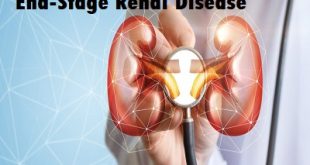What is epididymitis?
Epididymitis is an inflammation of the epididymis. The epididymis is a tube located at the back of the testicles that stores and carries sperm. When this tube becomes swollen, it can cause pain and swell in the testicles.
Epididymitis can affect men of all ages, but it’s most common in men between ages 14 and 35. It’s usually caused by a bacterial infection or a sexually transmitted disease (STD). The condition usually improves with antibiotics.
Acute epididymitis lasts six weeks or less. In most cases of acute epididymitis, the testes are also inflamed. This condition is called epididymo-orchitis. It can be difficult to tell whether the testes, epididymis, or both are inflamed. That’s why the term epididymo-orchitis is commonly used. According to the Centers for Disease Control and Prevention (CDC) Trusted Source, gonorrhea and chlamydia are the most common causes in men 35 years old or younger
Chronic epididymitis, on the other hand, lasts six weeks or more. Symptoms include discomfort or pain in the scrotum, epididymis, or the testicles. This may be caused by granulomatous reactions, which can result in cysts or calcifications.
Pathophysiology of epididymitis
The pathophysiology of epididymitis is divided; Chlamydia trachomatis and Neisseria gonorrhoeae are the most common pathogens in patients younger than 35 years, whereas Enterobacteriaceae and gram-positive cocci are frequent pathogens in older patients. In either case, infection results from a retrograde ascent of infected urine from the prostatic urethra into the vas deferens and, finally, into the epididymis.
Causes of epididymitis
The spread of bacterial infection usually causes epididymitis. This infection will often start in the urethra, prostate, or bladder.
Two main types of infection cause epididymitis:
Sexually transmitted infection (STI)
Epididymitis caused by an STI, such as gonorrhea or chlamydia, is most common in young, heterosexual men; particularly those who have sex with multiple partners and do not use a condom.
Cases of epididymitis that are not caused by an STI are less common.
Urinary tract infection (UTI)
Epididymitis caused by a UTI occurs in children, older men, and men who have sex with men. The following factors often cause UTIs in men:
- Enlarged prostate pressing on the bladder
- Insertion of a catheter into the penis
- Surgery on the groin, bladder, or prostate gland
Children
While cases of epididymitis in children are rare, they do occur. Often the bacterial infection will spread from the urethra or bladder.
Inflammation will usually develop due to one of the following:
- Direct injury to the area
- Twisting of the epididymis
- Urine flowing back into the epididymis
Other causes
There are also some more unusual causes of epididymitis:
- Mumps
- Tuberculosis
- High doses of a medication called amiodarone, usually taken for heart rhythm problems
- Groin injury
- Structural problems in the urinary tract
- Behcet’s disease
- Congenital kidney and bladder problems
Risk factors
Certain sexual behaviors that can lead to STIs put you at risk of sexually transmitted epididymitis, including having:
- Sex with a partner who has an STI
- Sex without a condom
- History of STIs
Risk factors for nonsexually transmitted epididymitis include:
- History of prostate or urinary tract infections
- History of medical procedures that affect the urinary tract, such as insertion of a urinary catheter or scope into the penis
- An uncircumcised penis or an anatomical abnormality of the urinary tract
- Prostate enlargement, which increases the risk of bladder infections and epididymitis
Symptoms
When a bacterial infection strikes, the epididymis gradually becomes swollen and painful. This usually happens on one testicle, rather than both. It can last up to 6 weeks if untreated.
You might have one or more of these other possible symptoms:
- Redness, swelling, or tenderness in the scrotum, the sac that contains the testes
- A more frequent or urgent need to pee
- A lump on your testicle
- Painful urination or ejaculation
- Fever
- Bloody urine
- Discomfort in your lower abdomen
- Enlarged lymph nodes in your groin
- A lump on your testicle
See your doctor if you have any of these symptoms.
Complications of epididymitis
If left untreated, acute epididymitis can lead to a range of complications, including:
- Chronic epididymitis – the inflammation can become persistent, even when there is no bacterial infection present
- Abscess – a ball of pus can accumulate inside the epididymis or nearby structures, requiring surgery to drain the pus
- Destruction of the epididymis – the inflammation can permanently damage or even destroy the epididymis and testicle, which can lead to infertility
- Spread of infection – the infection can spread from the scrotum to any other structure or system of the body.
How is Epididymitis diagnosed?
A health care practitioner will take a detailed history (including a sexual history), collect a urine sample, and perform a physical examination, including a prostate exam.
Laboratory Tests
- Urinalysis and urine culture: These tests aid in the diagnosis of a urinary tract infection (bladder infection).
- Urethral culture
- Urine can be tested for sexually transmitted diseases present in the urethra.
- Sometimes a swab is inserted about a one-half inch into the urethra and sent for testing (although uncomfortable, it only takes a few seconds).
- The results usually take about a day to come back to the health care practitioner, so follow-up is very important.
- The health care practitioner often also orders other tests such as a white blood cell count. A white blood cell count may be high if the infection is present. A Gram-stain of urethral exudates, in some cases, can presumptively diagnose the infecting bacteria.
- There are several rapid tests for some of the bacteria that cause epididymitis (N. gonorrhea, C. trachomatis). They detect the organisms by PCR and immunological methods. However, these tests usually require confirmation by actually culturing the bacteria.
Imaging Tests
- Ultrasound and nuclear scans help differentiate testicular torsion from epididymitis.
- CT and MRI scans are used occasionally to help determine and differentiate between many conditions that can cause some symptoms similar to epididymitis (for example, cysts, hydrocele formation (fluid-filled area), hernias, cancerous tissue, or the extent of abscesses or gangrene in swollen testicles).
The correct diagnosis of the cause of epididymitis by health care practitioners is important because an incorrect diagnosis may lead to many problems beyond the symptoms in the individual. The majority of infections involving the epididymis (over 50%) are due to sexually transmitted infectious agents or by bacteria acquired during sexual intercourse. Consequently, sexual partners of many patients should be notified and treated, even if they currently show no symptoms. However, many men (usually older than 39 years of age) and some children can acquire the disease without it being linked to sexual transmission (for example, bladder infection or chemical inflammation). Consequently, health care practitioners need to take a detailed history from the patient, and the patient has the responsibility to answer medical history questions honestly. The situation is even more complex when children have symptoms of epididymitis; most experts suggest that a Child Protective Agency be contacted if sexual abuse is suspected.
Treatment
Antibiotics are used to treat epididymitis caused by:
- STDs. A variety of antibiotics work against chlamydia and gonorrhea. These infections are the most common causes of epididymitis related to STDs. To prevent the spread of these diseases, all your sex partners should receive antibiotics as well.
- Intestinal bacteria. A variety of antibiotics work against this type of infection.
A young boy with epididymitis probably will be referred to a urologist. This doctor specializes in illnesses of the urinary tract and male reproductive organs. The urologist will check for urinary tract problems.
For epididymitis the following measures can help relieve the discomfort and may lead to quicker recovery:
- Rest in bed for a day or two.
- Elevate your scrotum with a towel.
- Apply cold packs to the painful area.
- Drink plenty of fluids, especially water.
- Take a nonsteroidal anti-inflammatory drug (NSAID) to relieve pain and inflammation. Ibuprofen (Advil, Motrin) and naproxen (Aleve, Naprosyn) are NSAIDs.
People with severe pain in the scrotum may need prescription pain medication.
Prevention
- You can reduce your risk of developing epididymitis caused by STDs.
- Practice safe sex.
- Have sex with only one, uninfected partner.
- Use latex or polyurethane condoms during every sexual activity. This includes oral and anal sex.
 Diseases Treatments Dictionary This is complete solution to read all diseases treatments Which covers Prevention, Causes, Symptoms, Medical Terms, Drugs, Prescription, Natural Remedies with cures and Treatments. Most of the common diseases were listed in names, split with categories.
Diseases Treatments Dictionary This is complete solution to read all diseases treatments Which covers Prevention, Causes, Symptoms, Medical Terms, Drugs, Prescription, Natural Remedies with cures and Treatments. Most of the common diseases were listed in names, split with categories.








What are the drugs to take when having gonorrhea
Gonorrhea is treated with a single dose of antibiotics, usually one of the following:
Ceftriaxone
Cefixime
Spectinomycin
If someone have that disses what is solution
For quicker recovery please read the measures mentioned in the treatment part.
can one be treated if he or she has lived with it for over 10 years?
It can be treated from proper treatment.
what medicine can we take to treat epidymitist?
Common treatments include antibiotics, which are administered for 4 to 6 weeks in chronic epididymitis and can include doxycycline and ciprofloxacin. pain medication, which can be available over-the-counter (ibuprofen) or can require a prescription (codeine or morphine)
The disease is spiritual attack which can only be managed by the medical doctor, it cure in spiritual way .likewise diabetes, hypertension, stroke only manage by medical doctor but total cure by spiritual way .
how to treat cystitis cause by STDs
UTIs are not spread through sexual contact–they don’t spread from person to person at all–and you do not need to be sexually active to get a UTI.
pls if one of ur testicle is swelling what is the treatment giving. thank u
Please consult a doctor to get treatment for swelling.
where by U can’t give birth what should you do for you to give birth
Enormous treatment is necessary.
l have a consistent problem of scrotum itching for a couple of years, what would be the cause and what is the treatment. Doctors have not known the cause.
The most common causes of itchy testicles are irritation and fungal infections from poor hygiene or excess sweating. Regularly bathing and applying lotion and powder can prevent most cases. The itchiness can also be caused by STDs like genital herpes, gonorrhea, and chlamydia.
testes have swelling and have pain
Testicular pain can have several causes, from infections to traumatic injuries. Sometimes, testicular pain can be a medical emergency. Kindly consult a physician for proper diagnosis and treatment.
what medicine can I take to increase the volume of sperms I produce during sex
Clomiphene citrate, which stimulates the hypothalamus and pituitary gland in the brain. This generates hormone production and the release of follicle-stimulating hormone (FSH) and luteinizing hormone (LH), which can increase sperm production.
But we greatly appreciate you to consult a doctor for appropriate drug prescription.
when you’re feeling pain during sex and urinating what’s the problem?
Sexually transmitted infections (STIs), such as chlamydia, gonorrhea, and herpes, can all affect the urinary tract and lead to pain when urinating. Symptoms may vary according to the type of STI.
Kindly contact a doctor to diagnose your problem.
Whenever i work hard a lot, i feel pain on Epididymis but when i stop working hard it again stop. what should i do to stop this and never return.
Kindly read and follow the treatment and prevention provided in the post.
I can no longer feel the pains after 4days of medication. though i still see the swelling but it is solidifying gradually. is that OK?
Gradual recovery is a good sign of healing of your Epididymitis.
I have lost earction in panies within 20 second.what madican I use to increase the volumes of sperm.
Sildenafil (Viagra), vardenafil (Levitra, Staxyn), tadalafil (Cialis) and avanafil (Stendra) are oral medications that reverse erectile dysfunction by enhancing the effects of nitric oxide, a natural chemical your body produces that relaxes muscles in the penis.
Note: For informational purposes only. Consult your local medical authority for advice.
if you don’t last up to a minute during sex, is there any solution to that?
Yes there’s a solution for premature ejaculation.
1) Strengthen your pelvic floor muscles.
2) Limit your thrusting.
3) Wait longer for intercourse—or hell, don’t do it all.
5) Choose sex positions that’ll help you last longer.
note: kindly contact a physician for better diagnosis and treatment option.
what are the drug to take when having gonorrhoa
Adults with gonorrhea are treated with antibiotics. Due to emerging strains of drug-resistant Neisseria gonorrhoeae, the Centers for Disease Control and Prevention recommends that uncomplicated gonorrhea be treated with the antibiotic ceftriaxone — given as an injection — with oral azithromycin (Zithromax).
Please, what is the exact antibiotics to treat chronic epididymitis?
Antibiotics, which are administered for 4 to 6 weeks in chronic epididymitis, and can include doxycycline and ciprofloxacin. pain medication, which can be available over-the-counter (ibuprofen) or can require a prescription (codeine or morphine).
what are the causes of swallon penis
Penis swelling can also be caused by:
Allergic reactions, Balanitis (inflammation of the foreskin), Dermatitis, Fournier’s gangrene (severe spreading groin infection), Penile cancer, Peyronie’s disease (presence of a lump that causes a bent penis), Priapism (sustained erection that is painful).
what are the causes of swallon penis. The penis is becaming big
Swelling of the penis can be due to various causes, including trauma or injury, infections such as sexually transmitted infections (STIs), allergic reactions to substances like soaps or condoms, and, in rare cases, priapism, a persistent and painful erection unrelated to sexual arousal. If experiencing persistent swelling, seeking prompt medical attention for proper diagnosis and appropriate treatment is advised.
I want to treat gonorrhea, what drugs can I take please
Your doctor will likely prescribe two antibiotics: ceftriaxone and either azithromycin (Zithromax, Zmax) or doxycycline (Monodox, Vibramycin).
Ceftriaxone is given as a one-time injection usually a dose of 250 milligrams (mg). The other two antibiotics are taken by mouth.
what are the medications for bloody urine
The medications for bloody urine depend on the underlying cause. For conditions like urinary tract infections, antibiotics are commonly prescribed. Pain medications and medications to assist in passing kidney stones may be used. Inflammatory conditions may require medications to address inflammation. Common antibiotics for urinary tract infections include ciprofloxacin or trimethoprim-sulfamethoxazole and Pain medications for kidney stones may include acetaminophen or ibuprofen. Consultation with a healthcare professional for a proper diagnosis and tailored treatment plan.